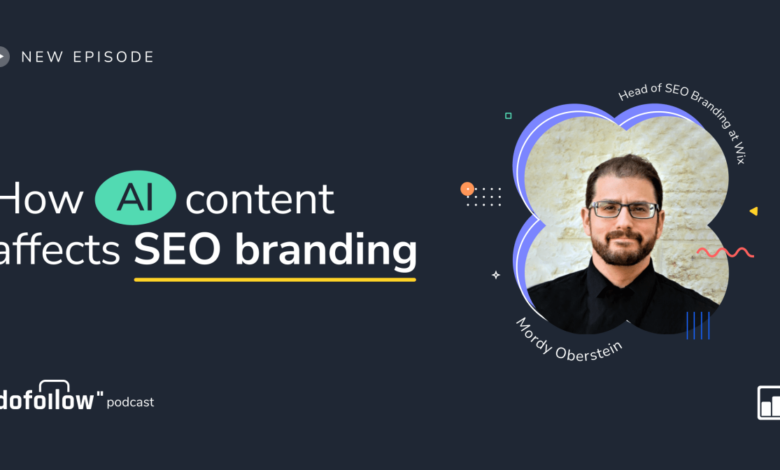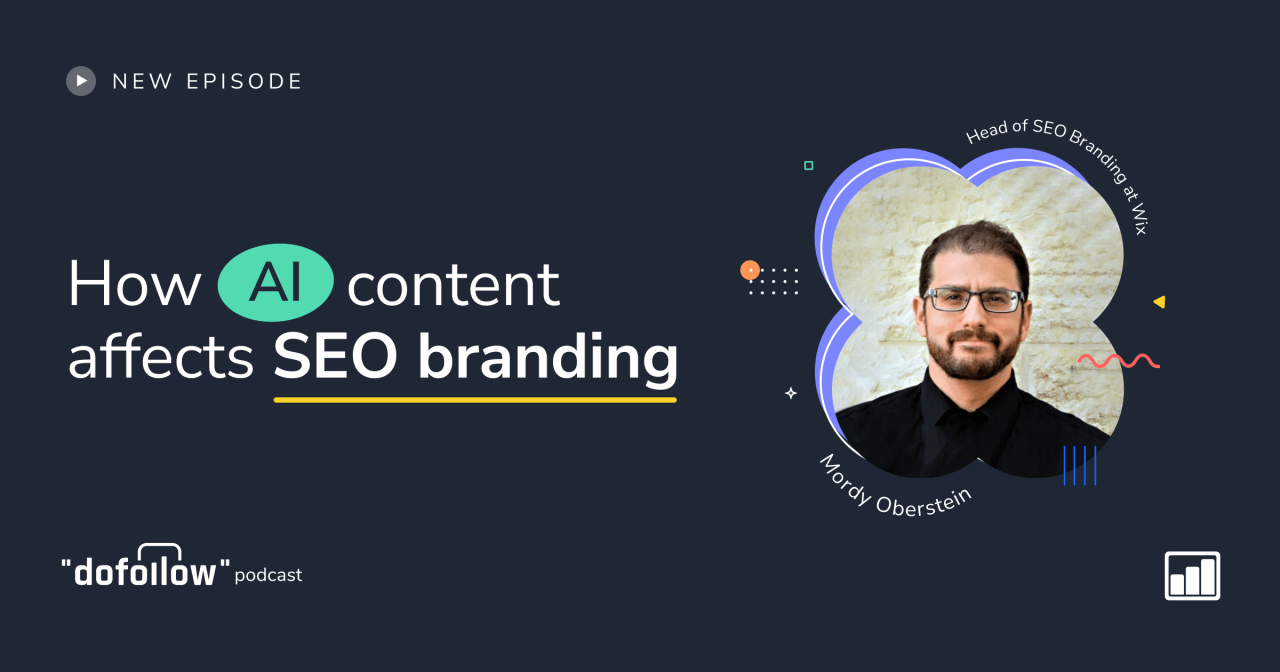
Is AI Generated Content Bad for SEO?
Is ai generated content bad for seo – Is AI generated content bad for ? That’s the million-dollar question buzzing around the digital marketing world right now. We’re all grappling with the rise of AI writing tools, and the impact on search engine rankings is a major concern. This post dives deep into the complexities of using AI-generated content, exploring the potential benefits and serious drawbacks for your website’s .
Search engines are constantly evolving their algorithms to combat spam and prioritize high-quality, human-created content. While AI can assist in content creation, relying solely on it can lead to penalties. We’ll examine how search engines detect AI-written text, discuss the risks of overusing it, and explore strategies to leverage AI responsibly without jeopardizing your efforts. We’ll also touch upon the ethical considerations and the importance of maintaining originality and a positive user experience.
AI-Generated Content and Search Engine Algorithms

Source: verblio.com
The relationship between AI-generated content and search engine algorithms is complex and constantly evolving. Search engines are increasingly sophisticated in their ability to detect and penalize content that lacks originality, authenticity, and genuine value for users. Understanding how these algorithms work and the potential consequences is crucial for anyone creating online content.Search engines employ a variety of methods to identify AI-generated content.
These methods aren’t publicly disclosed in detail by companies like Google, but generally involve analyzing various linguistic and structural aspects of the text. This includes assessing the presence of repetitive patterns, unnatural phrasing, a lack of nuanced vocabulary, and an absence of unique perspectives or insights. Sophisticated algorithms look for inconsistencies in writing style and the overall coherence of the text.
They also cross-reference content against a vast database of existing online material, flagging suspiciously similar pieces. Essentially, the algorithms aim to distinguish between human-generated content with its inherent imperfections and idiosyncrasies, and the often overly polished, predictable output of current AI writing tools.
Detection Methods for AI-Generated Content
Google and other search engines utilize a multi-pronged approach to detect AI-generated content. This includes analyzing the text’s statistical properties, comparing it to a vast database of known AI-generated content, and assessing its overall quality and relevance. While the exact algorithms remain confidential, factors such as readability scores, sentence structure complexity, and the presence of unique vocabulary are likely key indicators.
Furthermore, the contextual relevance and overall user experience provided by the content are also evaluated. Poorly written, uninformative, or repetitive content, regardless of its origin, is likely to be flagged. This comprehensive approach helps search engines to filter out low-quality content, regardless of whether it’s human or AI-generated.
Potential Penalties for Using AI-Generated Content Heavily
Over-reliance on AI-generated content can lead to several penalties from search engines. The most significant is a decrease in search engine rankings. This means your website will appear lower in search results, resulting in significantly less organic traffic. Further penalties can include a complete de-indexing of your website, meaning it’s removed entirely from search results. This effectively makes your website invisible to users searching online.
In severe cases, Google and other search engines might even issue a manual action against your site, requiring a detailed remediation plan before your site is reinstated. The severity of the penalty is usually proportionate to the extent of the AI-generated content and its overall quality. It’s important to note that the focus is not simply on
detection* of AI content, but rather on the quality and user experience it provides.
Examples of Website Penalties Related to AI-Content
While specific examples of website penalties related solely to AI-generated content are rarely publicly disclosed by search engines for competitive reasons, numerous cases exist where sites employing low-quality, mass-produced content (often generated with AI tools) have faced significant ranking drops. For example, a website heavily relying on AI-generated articles lacking originality and depth may see its rankings plummet for relevant s.
So, is AI-generated content bad for SEO? It’s a complex issue, and honestly, the answer depends on how you use it. But creating engaging, high-quality video content is crucial, and that’s where learning more about YouTube comes in – check out this awesome guide on getting it on with YouTube to boost your visibility. Ultimately, supplementing your AI content with genuine human creativity and a strategic approach is key to SEO success.
Similarly, a website that publishes thin, -stuffed articles generated by AI could face penalties for violating search engine guidelines on spam and low-quality content. These penalties often manifest as a loss of organic traffic and visibility, highlighting the importance of prioritizing quality over quantity.
Strategies for Creating Content That is Both Human-Readable and Algorithm-Friendly, Is ai generated content bad for seo
The key is to leverage AI tools responsibly asassistants*, not replacements, for human creativity and expertise. Focus on creating high-quality, original content that provides genuine value to the reader. Use AI tools to aid in tasks such as research, brainstorming ideas, and overcoming writer’s block, but always review and edit the output meticulously. Incorporate unique perspectives, personal experiences, and original insights to add a human touch.
Prioritize clear, concise, and engaging writing, ensuring the content is both informative and enjoyable to read. Furthermore, conduct thorough research to understand what users are searching for, but avoid stuffing or unnatural phrasing. Finally, focus on building a strong reputation and establishing authority within your niche, which are factors that search engines value highly. By combining human ingenuity with the efficiency of AI tools, you can create content that performs well in search engine results while providing a positive user experience.
Quality and Originality of AI-Generated Content

Source: accredian.com
The rise of AI content generators presents a double-edged sword for . While offering speed and efficiency, it introduces significant challenges regarding content quality and originality. Ensuring both is crucial for avoiding penalties from search engines and, more importantly, for building a valuable and trustworthy online presence. The core problem lies in the inherent nature of AI: it learns from existing data, meaning there’s a risk of producing content that’s derivative, lacking originality, and potentially even plagiarized.AI-generated content, while often grammatically correct and structurally sound, frequently lacks the nuanced understanding and creative flair of human writing.
This can manifest in bland, generic text that fails to resonate with readers or provide genuine value. Furthermore, the ease with which AI can churn out vast quantities of text raises concerns about the potential for content farms to flood the internet with low-quality, -stuffed articles, ultimately harming the overall quality of search results.
Methods for Evaluating AI-Generated Content Quality and Originality
Assessing the quality and originality of AI-generated text requires a multifaceted approach. It’s not enough to simply run it through a plagiarism checker, although that’s a crucial first step. A more thorough evaluation involves considering several factors. First, analyze the content’s depth and insight. Does it offer a unique perspective or simply rehash existing information?
Second, examine the writing style. Is it engaging and readable, or does it feel robotic and impersonal? Finally, check for factual accuracy and consistency. AI can sometimes hallucinate facts, creating misleading or incorrect information. Tools designed to detect AI-generated content are emerging, but their accuracy varies, and human review remains essential.
Readability and Engagement: Human vs. AI
The readability and engagement of human-written content typically surpass that of AI-generated content. Human writers possess a deeper understanding of context, audience, and emotional resonance. They can craft narratives that are both informative and captivating, weaving in personal experiences, anecdotes, and unique perspectives. AI, while capable of mimicking certain writing styles, often struggles to achieve the same level of naturalness and emotional connection.
A human-written article about a personal travel experience, for instance, will likely be far more engaging than an AI-generated piece on the same topic, even if the AI piece covers all the necessary facts. The human touch adds a level of authenticity and personality that AI currently lacks.
Common Issues Affecting Search Engine Rankings
Several common issues in AI-generated content negatively impact search engine rankings. Thin content, lacking substance and originality, is easily flagged by algorithms. stuffing, a practice often employed to manipulate search results, is another major problem. AI-generated content, especially when poorly optimized, is prone to both of these issues. Furthermore, a lack of E-A-T (Expertise, Authoritativeness, Trustworthiness) is a significant factor.
Search engines prioritize content from reliable sources with established expertise. AI-generated content, especially if not properly vetted and edited by a human, often lacks this crucial element. Finally, duplicated or near-duplicate content, a frequent byproduct of AI content farms, will be penalized by search engines. Google’s algorithms are increasingly sophisticated in detecting and devaluing low-quality, unoriginal content.
Impact on User Experience: Is Ai Generated Content Bad For Seo
AI-generated content, while offering speed and efficiency, can significantly impact user experience if not carefully crafted and reviewed. The primary concern lies in the potential for creating content that lacks authenticity, depth, and the human touch that readers often value. This can lead to frustration, disengagement, and ultimately, a negative perception of the brand or website offering such content.
Poorly written AI-generated content often suffers from a lack of originality and creativity. It can feel generic, repetitive, and devoid of personality. The writing style might be stilted and unnatural, filled with awkward phrasing and grammatical errors. This ultimately hinders the reader’s ability to connect with the content and understand the message effectively. The absence of a unique perspective or engaging narrative makes it less likely that readers will find the information valuable or memorable.
Examples of Poorly Written AI-Generated Content and Their Impact
Imagine reading a product review generated by AI that simply lists features without providing any personal insight or opinion. The review might say, “This product has a large screen, a powerful processor, and a long battery life,” but fails to convey whether those features are actually beneficial or if the product is worth purchasing. This type of bland, uninformative content leaves the reader feeling unsatisfied and uninformed.
Similarly, an AI-generated blog post about a travel destination that reads like a dry encyclopedia entry, lacking vivid descriptions and personal anecdotes, would fail to inspire wanderlust and would likely be ignored.
Another example could be an AI-generated article about a complex topic that simplifies the subject matter to the point of inaccuracy or misrepresentation. This not only frustrates readers seeking accurate information but also damages the credibility of the source. The result? Readers lose trust, and the website’s reputation suffers.
User Survey to Assess Perception of AI-Generated Content
To understand the public perception of AI-generated content, a well-designed survey is crucial. The following table Artikels a potential survey design:
| Question | Answer Type | Target Audience |
|---|---|---|
| How often do you encounter AI-generated content online? | Multiple Choice (Never, Rarely, Sometimes, Often, Very Often) | General internet users aged 18-65 |
| Do you believe you can easily identify AI-generated content? | Multiple Choice (Yes, No, Sometimes) | General internet users aged 18-65 |
| How would you rate the overall quality of AI-generated content you’ve encountered? | Rating Scale (1-5, 1 being very poor, 5 being excellent) | General internet users aged 18-65 |
| Would you be more or less likely to trust a website that uses AI-generated content? | Multiple Choice (More Likely, Less Likely, No Difference) | General internet users aged 18-65 |
Strategies for Improving User Experience with AI-Generated Content
Improving the user experience when using AI-generated content requires a human-in-the-loop approach. Simply relying on AI alone is insufficient. Effective strategies include:
First, always have human editors review and edit the AI-generated content. This ensures accuracy, clarity, and a natural writing style. Second, focus on creating content that provides genuine value to the reader, offering unique insights, personal perspectives, and engaging storytelling. Third, prioritize transparency. Clearly indicate when content is AI-generated, building trust and managing expectations.
Finally, incorporate user feedback to continuously improve the quality and relevance of the content.
Ethical Considerations of AI-Generated Content
The rise of AI content generation tools presents a fascinating ethical dilemma. While offering unprecedented speed and efficiency in content creation, these tools also raise serious questions about authorship, authenticity, and the potential for misuse. Understanding the ethical implications is crucial for responsible use and preventing negative consequences.
Attribution and Authorship of AI-Generated Content
Failing to properly attribute AI-generated content constitutes plagiarism, a serious ethical breach. Even if the AI tool is explicitly stated, the lack of human intellectual contribution raises questions about originality and ownership. Many publications and organizations now have strict policies against submitting AI-generated content without clear disclosure, recognizing that it’s misleading to present AI-generated text as solely human work.
This lack of transparency undermines trust and devalues the work of human writers. Transparency is key; clearly stating the use of AI tools ensures readers understand the content’s origin and avoids misrepresentation.
Potential for Misinformation and Harmful Content
AI models are trained on vast datasets, some of which may contain biased, inaccurate, or harmful information. This can lead to the generation of content that spreads misinformation, perpetuates harmful stereotypes, or promotes dangerous ideologies. For example, an AI trained on biased data might generate articles that reinforce racial or gender prejudices. The lack of critical thinking and fact-checking inherent in purely AI-generated content amplifies this risk.
Furthermore, malicious actors could leverage AI tools to generate convincing disinformation campaigns at scale, posing a significant threat to public discourse and social stability.
Best Practices for Responsible Use of AI-Generated Content
The responsible use of AI-generated content requires careful consideration and adherence to ethical guidelines. Here are some best practices:
- Always disclose the use of AI: Clearly state when AI tools have assisted in content creation.
- Fact-check and verify all information: Never rely solely on AI-generated content; always cross-reference information with reliable sources.
- Review and edit AI-generated content carefully: Ensure the content is accurate, unbiased, and aligns with ethical standards.
- Avoid using AI to generate content for sensitive topics: AI may not be equipped to handle the nuances and complexities of sensitive issues like medicine or finance.
- Consider the potential impact on users: Assess whether the content could be harmful or misleading before publication.
Ethical Comparison: AI-Generated vs. Human-Written Content
| Feature | AI-Generated Content | Human-Written Content |
|---|---|---|
| Originality | Potentially lower, depending on training data and prompts; prone to plagiarism if not properly attributed. | Higher, reflecting unique human thought and perspective. |
| Accuracy | Can be inaccurate or biased if training data is flawed. Requires verification. | Higher potential for accuracy, especially with thorough research and fact-checking. |
| Ethical Considerations | Requires careful consideration of attribution, potential for misinformation, and responsible use. | Ethical considerations focus on accuracy, honesty, and avoidance of plagiarism. |
| Bias | Can reflect biases present in the training data. | Can reflect human biases, but with awareness and critical thinking, this can be mitigated. |
Alternative Approaches to Content Creation

Source: seranking.com
So, we’ve established that while AI can be a helpful tool, over-reliance on AI-generated content can hurt your . But what are the alternatives? How can we create high-quality, engaging content that search engines love and readers appreciate, without resorting to AI shortcuts? Let’s explore some effective, human-centered approaches.The key is to leverage human creativity and expertise in a structured and efficient workflow.
This involves understanding your audience, researching thoroughly, and crafting compelling narratives that resonate with readers. By focusing on the human element, we can produce content that is not only -friendly but also genuinely valuable and engaging.
Human-Centric Content Creation Strategies
Several strategies effectively enhance content creation without AI. These methods focus on the human element, ensuring originality, accuracy, and a strong connection with the target audience. Effective content creation often blends multiple approaches.
Research and Audience Analysis: Before writing a single word, thoroughly research relevant s and deeply understand your target audience. Utilize tools like Google Planner, Ahrefs, or SEMrush to identify s with high search volume and low competition. Analyze your audience’s demographics, interests, and online behavior to tailor your content to their needs and preferences. This ensures your content addresses their pain points and provides value, leading to increased engagement and higher rankings.
Content Outlining and Structuring: A well-structured Artikel acts as a roadmap for your content. It ensures logical flow, prevents rambling, and helps maintain focus. Start with a central theme and break it down into s, supporting points, and relevant examples. A clear Artikel improves writing efficiency and helps ensure the content is comprehensive and easy to understand.
Collaborative Content Creation: Involving multiple individuals in the content creation process can lead to richer, more nuanced content. Brainstorming sessions with writers, editors, and subject matter experts can generate innovative ideas and diverse perspectives. This collaborative approach ensures the content is accurate, comprehensive, and appealing to a broader audience.
Visual Representation of Human-Led Content Creation
Imagine a flowchart. The process begins with a “Start” node. This branches into two parallel paths: ” Research & Audience Analysis” and “Topic Selection & Brainstorming.” These paths converge at a “Content Artikel” node. From there, a path leads to “Content Writing,” which then branches into “Editing & Fact-Checking” and ” Optimization.” Finally, these paths converge at a “Publishing” node, followed by a “Performance Monitoring” node, which feeds back into the “Topic Selection & Brainstorming” node, creating a continuous cycle of improvement.
Each stage involves human input, ensuring quality and relevance at every step.
The Role of Human Editors and Fact-Checkers
Human editors and fact-checkers play a critical role in maintaining the quality and accuracy of online content. Editors refine the writing style, ensuring clarity, consistency, and engagement. They check for grammar, spelling, and punctuation errors, and ensure the content aligns with the overall brand voice and style guide. Fact-checkers verify the accuracy of information presented, ensuring that all claims are supported by credible sources.
This meticulous process enhances the credibility and trustworthiness of the content, which is crucial for building a positive brand reputation and achieving high search engine rankings. Without this human oversight, even the most brilliant writing can be undermined by inaccuracies or poor presentation.
Conclusive Thoughts
So, is AI-generated content bad for ? The short answer is: it depends. Used responsibly and ethically, as a tool to assist in the content creation process, AI can be beneficial. However, relying solely on AI-generated content, without human oversight and editing, can seriously harm your search engine rankings and damage your website’s reputation. Prioritize creating high-quality, original content that provides value to your audience.
Remember, search engines are always looking for human-created, engaging content that provides a positive user experience – and that’s where the real magic happens.
FAQ Explained
Can I use AI to write ALL my website content?
No. Over-reliance on AI-generated content can lead to penalties. Use AI as a tool to assist, but ensure human editing and originality.
How can I tell if my content is too AI-generated?
Look for unnatural phrasing, lack of originality, and repetitive sentence structures. Use AI detection tools for a more thorough analysis.
What are the potential penalties for using too much AI content?
Penalties can range from lower search engine rankings to complete de-indexing of your website.
What are some ethical considerations of using AI for content creation?
Ensure proper attribution if using AI tools, avoid spreading misinformation, and be transparent about the use of AI in your content creation process.





